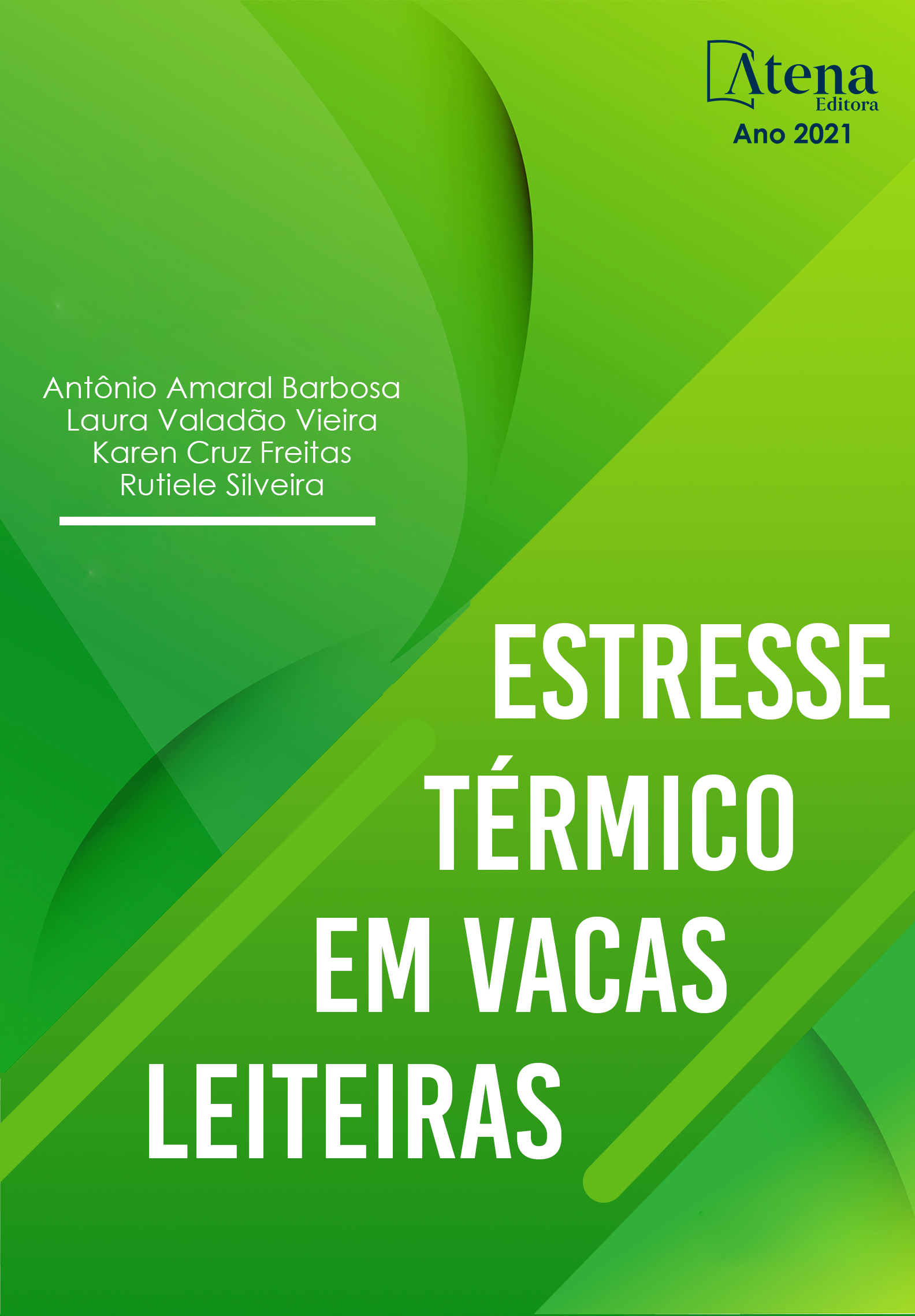
ESTRESSE TÉRMICO EM VACAS LEITEIRAS
O estresse térmico em bovinos leiteiros é um distúrbio provocado tanto pelo aumento da temperatura ambiental em níveis acima de 21°C, quanto por temperaturas abaixo de -5ºC. Em ambos os casos, o transtorno constitua um dos grandes desafios na criação, no que se refere à manutenção dos índices produtivos, saúde e bem-estar dos animais. No entanto, este livro abordará a hipertermia, visto que, esta é mais comumente observada em países de clima tropical e subtropical, como o Brasil. Além de que, diante as alterações climáticas, espera-se que a temperatura da superfície terrestre seja cada vez maior, aumentando a incidência do estresse térmico por calor. Este que atualmente já é observado em vacas de alta produção no mundo todo, por semanas ou até mesmo meses durante o ano. O estresse térmico gerado pelo calor promove aclimatações fisiológicas no metabolismo animal, que ocorrem para promover a termorregulação, estas por sua vez, provocam a redução na ingestão de matéria seca, bem como, aumentam a demanda energética do animal. Por esse motivo, animais em hipertermia tendem a apresentar aumento na incidência de enfermidades metabólicas e infecciosas, baixos índices reprodutivos, retardo no desenvolvimento corporal e diminuição na produção de leite. Estes efeitos negativos também podem ser observados nas progênies, filhas de vacas termicamente estressadas, bem como, na terceira geração, ou seja, nas netas das fêmeas submetidas a altas temperaturas. Assim, diante dos efeitos deletérios gerados pelo distúrbio, é crescente a implantação de sistemas de resfriamento nas fazendas, como também os estudos voltados a descoberta de novas estratégias eficientes em promover o resfriamento dos animais ou que auxiliem na aclimatação. Neste sentido, o objetivo deste livro consiste em abordar as aclimatações e adaptações que ocorrem no metabolismo animal diante do estresse térmico, descrever os impactos gerados pela problemática nos sistemas de produção, além de abordar ferramentas e estratégias nutricionais que auxiliam a minimizar os efeitos da hipertermia.
ESTRESSE TÉRMICO EM VACAS LEITEIRAS
-
DOI: 10.22533/at.ed.401211006
-
Palavras-chave: bovinos; produção; reprodução; saúde
-
Keywords: bovines, production, reproduction, health
-
Abstract:
Thermal stress in dairy cattle is caused by temperatures above 21°C or below -5ºC. Both situations are challenging for farmers in term of maintaining the cow’s productivity, health and welfare. Nevertheless, this book will address heat stress as it is most commonly observed in areas such as Brazil with tropical and subtropical climates. Furthermore, the rise in global temperatures brought on by climate change will likely cause an increase in the incidence of heat stress. Heat stress can be observed for weeks or evens months in highly productive dairy cattle worldwide. Cows experiencing heat stress undergo physiological and metabolic shifts in order to thermoregulate which decrease dry matter intake and increase the animal’s energy requirement. Therefore, hyperthermia increases the incidence of metabolic and infectious diseases, and reduces reproduction rates and milk yields, while also stalling development. These negative effects can also be observed in the descendants of heat stressed cows all the way through the third generation. In order to mitigate hyperthermia and its effects, cooling systems are becoming more common in dairy farms. In this sense there’s an increasing amount of research occurring for the discovery and development of novel and more efficient strategies to reduce temperatures and alleviate hyperthermia. Thus, the objectives of this book were to address the metabolic shifts that take place during heat stress, describe the impact of this issue in dairy farms and discuss the tools and nutritional strategies that help minimize its effects.
-
Número de páginas: 81
- Antônio Amaral Barbosa
- Karen Cruz Freitas
- Rutiele Silveira
- Laura Valadão Vieira


